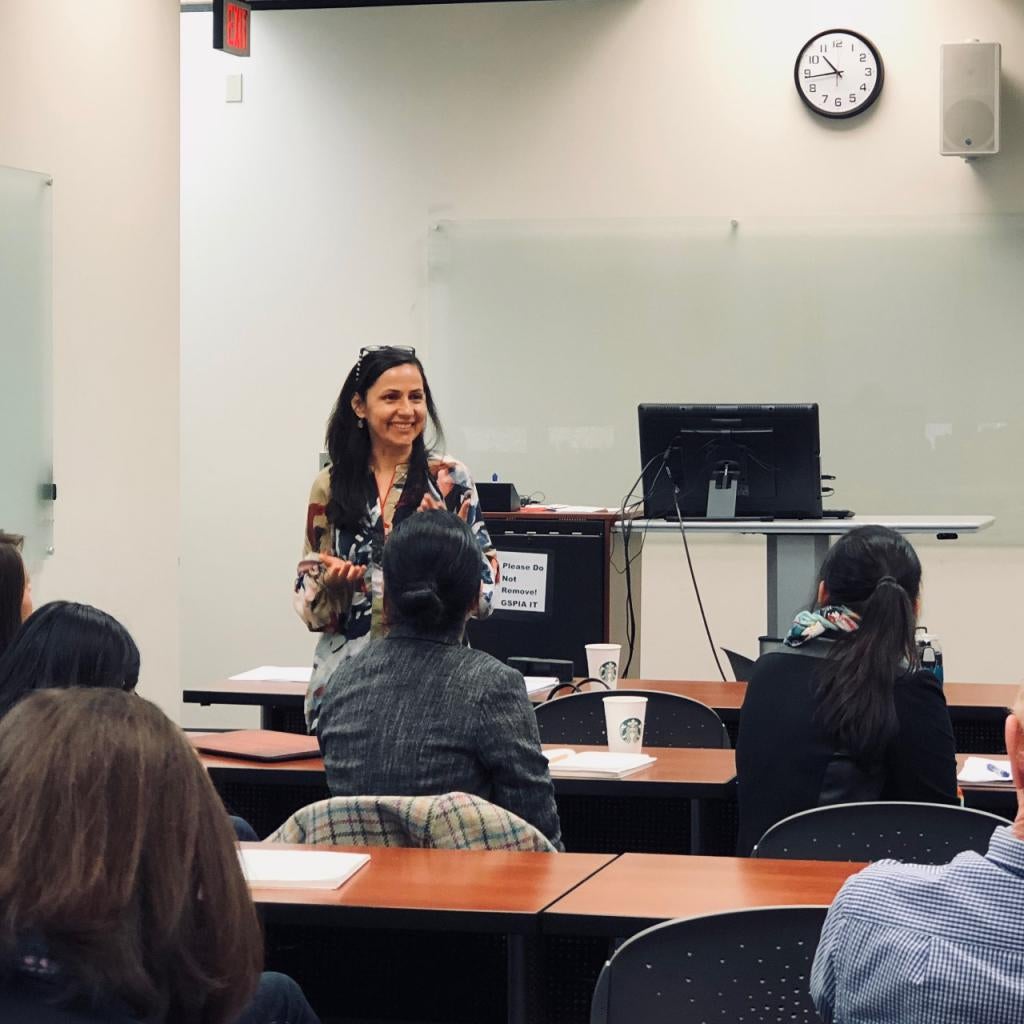 Working with her colleagues at Cornell and Food & Water Watch, GSPIA’s Dr. Marcela González Rivas released new research examining the 500 largest US community water systems—and found that private water ownership increases water prices, making a vital resource less accessible to low-income families.
Working with her colleagues at Cornell and Food & Water Watch, GSPIA’s Dr. Marcela González Rivas released new research examining the 500 largest US community water systems—and found that private water ownership increases water prices, making a vital resource less accessible to low-income families.
For equitable and sustainable water access, Dr. González and her team call for more permanent state and federal support, and state regulations that protect rate payers over private operators.
The full open access article, “Water pricing and affordability in the US: public vs. private ownership,” published in Water Policy Journal, is available to read here.
Dr. González Rivas is an assistant professor whose research focuses on uneven water access across various regions, and how community development, policy and planning can exacerbate or reduce these inequalities. She also leads the Ford Institute Working Group Closing the Water Gap, which advocates water access, equity and affordability.
“Water affordability is a growing challenge in the US and is receiving more attention. For example, the Biden administration launched early this year the first federal program of water assistance as an emergency temporary response to the pandemic. In our study of the 500 largest community water systems in the U.S. we find that, consistent with what experts agree on, factors like aging infrastructure, poverty and severe drought are key factors behind the rising affordability crisis in water. Our data shows that many of the communities with the highest prices are in deindustrialized places with old infrastructure and high poverty. Our research argues that to provide adequate customer assistance and affordability programs is expensive and requires state and federal support, beyond the temporary current program,” Dr. González Rivas writes.
“But our results also show that private ownership is associated with higher water bills and less water affordability for low-income households. Related to this, we find that state regulation matters. Some states, like New Jersey and Pennsylvania, are adopting regulatory policies more favorable to private operators: for example, NJ and PA legislations allow the private purchase of municipal systems without a public referendum; or regulations which value assets above book value to facilitate acquisitions of public systems, and surcharges related to capital costs that enable rate adjustments between rate cases. Our research calls attention to the need for regulations that protect rate payers.”
The article was published on World Water Day, the United Nation’s annual effort to emphasize the importance of freshwater access.
